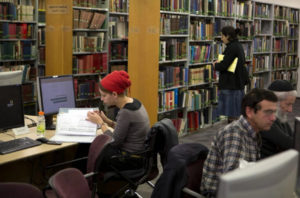The National Library of Israel (NLI) recently sent ripples of excitement through the global community of academic scholars of Islam by announcing it had begun to digitise more than 2,500 priceless Islamic manuscripts.
Among the treasures, which will be made freely available online, are a 15th-century copy of the poetry of the classic Iranian poet Nur al-Din Jami, and a tiny 10th-century Quran worn as an amulet by an Ottoman soldier at the 1529 Siege of Vienna.
These manuscripts undoubtedly belong to humanity’s heritage, and their availability to all must be welcomed. Many are too delicate to be put on permanent display, and they remained inaccessible to scholars, particularly from Arab and Islamic-majority countries, to whom Israel denies entry within its borders.
Yet, there is a political context to the NLI’s decision that cannot be ignored.
World-class collection
While a recent article on the NLI stated that “perhaps the last place you might think to look for a world-class collection of Islamic manuscripts and treasures of the Arabic-speaking world, would be Jerusalem”, there is every reason why Jerusalem should hold such a collection.
For centuries, Jerusalem was the centre of pilgrimage from across the Islamic world. Drawn by al-Aqsa Mosque, Muslim pilgrims from as far afield as South Asia and West Africa arrived in Jerusalem, among them many scholars. As early as the 13th century, there was a literary school within al-Haram al-Sharif, the compound containing al-Aqsa.
While the NLI is opening up its Islamic archives … archives on darker aspects of Israel’s past remain firmly closed
Palestine was also home to two of the Islamic world’s greatest libraries. In the northern city of Acre in present-day Israel, al-Jazzar Mosque Library was founded more than two centuries ago.
While the area was heavily bombarded during Napoleon’s attempted invasion of Palestine in 1799, the library was refurbished by the Ottoman Empire, and was freely available to Muslims and non-Muslims alike.
Al-Aqsa Mosque Library in Jerusalem’s Old City was founded in 1922, receiving donations not only of historic Islamic manuscripts, but also secular newspapers and scientific journals collected by Palestine’s intellectual elite. The collections of both these libraries have already been digitised by the Endangered Archives Programme.
Other libraries and private collections were established around Palestine in the early 20th century, as literacy increased. But the development of scholarship, Islamic and otherwise, was abruptly halted by the Nakba of 1948, the declaration of the state of Israel and the flight of around 750,000 Palestinian refugees from their homes.
In West Jerusalem alone, entirely emptied of its Palestinian population, 30,000 books were left behind. Some 6,000 of these works ended up in the NLI, never returned to their rightful owners.

